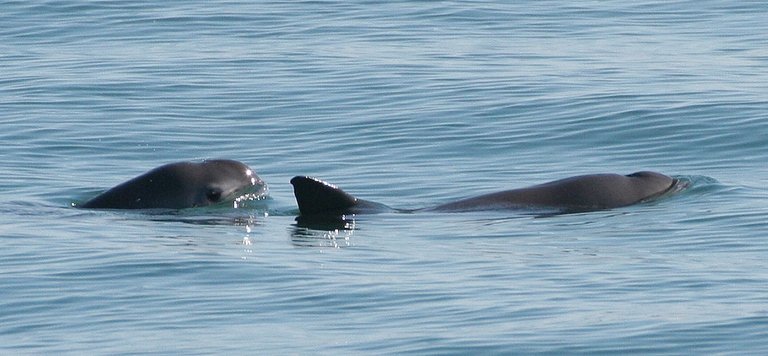
Our species took its first steps in a world covered in trees. Today, forests offer us sustenance, shelter, and clean the air that we breathe.
The vaquita, little cow in Spanish, is also known as the desert porpoise: it is the smallest cetacean on Earth and was discovered as recently as the 1950s. Its distribution is restricted to a small region in the Upper Gulf of California in Mexico. In recent years the species has undergone a rapid decline that
The vaquita, little cow in Spanish, is also known as the desert porpoise: it is the smallest cetacean on Earth and was discovered as recently as the 1950s. Its distribution is restricted to a small region in the Upper Gulf of California in Mexico. In recent years the species has undergone a rapid decline that brought its abundance to drop below 100 animals in 2014. The cause behind such a catastrophic downfall is by-catch, which is accidental entanglement in fishing nets. It is estimated that between forty to eighty individuals have been drowning every year in artisanal and commercial gillnets, walls of netting that trap fish by their gills, and trawl nets used to catch fish and shrimp.
The Vaquita Expedition 2015, which ran from September to early December, is a scientific survey aimed at finding out how many vaquitas remain at the start of the Mexican government’s emergency ban on gillnet fishing. Similarly to previous surveys in 1997 and 2008, this year’s expedition is the result of a tight collaboration between Mexico and the United States, and brings together several world leading experts on porpoises. Scientists on board the research vessel were relieved to report that 25 animals were spotted over the first weeks of the survey.
The dramatic state of the vaquita population was recognised over two decades ago. Together with the International Whaling Commission, the International Committee for the Recovery of the Vaquita has repeatedly called for the immediate removal of all gillnets from the species’ range. Despite some efforts to address such recommendations, actions have failed to revert the decline due to lack of effective enforcement.
It was only in April 2015 that the Mexican government announced an emergency two-year ban of any gillnet fishing in the region in an unprecedented attempt to save the species from extinction. The ban was paired with a compensation package for fishermen, as well as a strict enforcement plan working closely with local communities.
The reported sightings of the Vaquita Expedition 2015 give hope that this iconic species still inhabits our oceans. However, we will have to wait for the definitive results of the survey, expected in spring 2016, to understand how much time is left to prevent the vaquita from becoming the second cetacean species that we lose after the baiji, a dolphin that inhabited the Yangtze River in China that was declared extinct due to human causes in 2006.
Siamo anche su WhatsApp. Segui il canale ufficiale LifeGate per restare aggiornata, aggiornato sulle ultime notizie e sulle nostre attività.
![]()
Quest'opera è distribuita con Licenza Creative Commons Attribuzione - Non commerciale - Non opere derivate 4.0 Internazionale.
Our species took its first steps in a world covered in trees. Today, forests offer us sustenance, shelter, and clean the air that we breathe.
Poachers in Africa are encroaching on wildlife land and killing rhinos in travel hot spots now devoid of visitors due to the coronavirus pandemic.
Over 730 days have passed since the last rhino was killed in Nepal. Let’s discover the secrets of the country that set an example for the whole world.
Actor and environmental activist Leonardo DiCaprio has contributed two million dollars to a fund to protect Virunga National Park in Congo from threats such as terrorism, the coronavirus and poaching.
For the first time in seventeen years, Iceland’s two main whaling companies won’t resume whale hunting. The announcement concerns this year’s season but could carry into the future.
The relationship between the coronavirus and wildlife is complex: while the pandemic may lead to a reduction in the illegal trade in wild animals, it may also encourage it in other respects.
The largest coral reef in the world is severely threatened by climate change, but researchers are developing strategies that could contribute to saving the Great Barrier Reef.
NGO Free the Bears has opened a mountain sanctuary for moon bears in Laos. With the government’s help, it aims to close all bile farms by 2022.
Seychelles have extended its marine protected area, which now covers over 400,000 square kilometres, an area larger than Germany.








